#stonewall 50th
Text
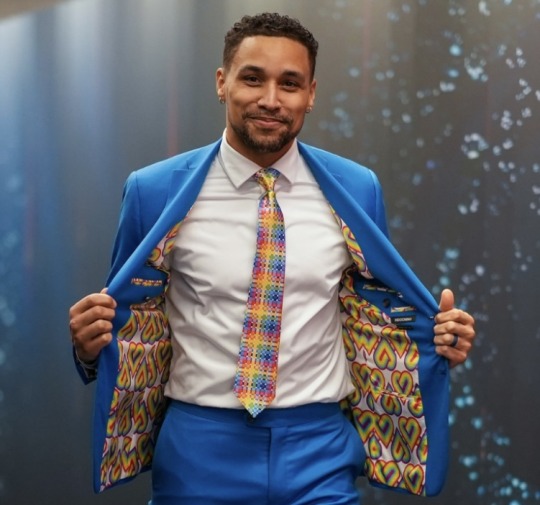
Kraken broadcaster JT Brown shares why Pride is so important to him and why he’ll be celebrating the LGBTQ+ community all month long
June is an exciting month. There’s Stanley Cup final hockey on the TV, the sun is shining down on Seattle, I hit the links on Father’s Day, and it's Pride month—a month dedicated to celebrating the LGBTQ+ community and commemorating the 1969 Stonewall Uprising in Manhattan. In our house, June is a busy month, but nothing gets celebrated harder than Pride.
Earlier this month, I had the honor of playing in the Seattle Pride Classic at the Kraken Community Iceplex. The invitation to share the ice with LGBTQ+ players from all over is an honor I don’t take lightly. Striking up a conversation on the bench between shifts, I turned to the player next to me. “Nice tape job. Canucks fan?” I said, noting the different colors of tape spiraling down the blade. “No, these colors represent one of the queer flags,” they said.
The bad news is I felt like an idiot. The good news is, I’ll always recognize that flag. Trying means stumbling, losing the puck, shooting wide (pick your analogy), but I’ve never been too proud to admit I caused the turnover and apologize. And we both laughed because sometimes falling on your ass is funny.
From ice to asphalt, the Pride celebration continues as my family and I will be at the 50th annual Seattle Pride Parade on June 30. As someone who is known for their flair for flashy game-day suits, it should not come as a surprise that I love an excuse to get dressed up. Throw in good music and free swag and you’ll understand why I don’t miss a pride parade.
And no one does pride quite like Seattle. It’s no wonder the Kraken pull up to the parade every year with a crew so deep I momentarily worry we’re going to hold up the parade. We’re out there flinging Kraken giveaways like someone is keeping score of how many each employee can hand out—I always aim for the high score.
Of course, being an ally isn't just flinging Kraken patches into a crowd or embarrassingly mistaking flag colors for rival team branding. A lot of it is just showing up.
I show up for my queer wife so she knows I support her even if I still don’t understand what “Brat summer” means. I show up for my kids so they know I love their authentic selves no matter what. I show up for my friends so they know they’re safe with me. I show up because there are LGBTQ+ people out there who are being stood up by the ones they love, by policies, by corporations, by strangers.
People always praise me for being an ally, but having been on the receiving end of bigotry, I know how much easier it is to stand on this side. When I fight for BIPOC equality, I am always lifted by the voices and support of the LGBTQ+ community. Every single time, they have supported me in my fight to help end racism in hockey.
They have been incredible teammates to me and so being one to them was never a choice I made, it was just something I did—and will continue to do with whatever platform I’m given. Everyone deserves the safety and support to live their authentic lives. When we lift up those who need us most, we all reap the benefits of a safer and more inclusive space.
This Pride month, I’d like to encourage others to show up—unabashedly loud and proud—for yourself and for others. Have a happy, safe, and fun Pride!
2K notes
·
View notes
Text
Everything you need to know : Failed Coming Out 2019
This is an answer to an anon I've received.
I typed it all and Tumblr said there was an error when I went and tried to published it. So I had to type it all again but lost the anon....
Here's the question: could you tell me more about her wanting to come out in 2019? sorry for asking again I'm new on the fandom!
Hi!
It will be my pleasure! This is such an important part of the Gaylor Lore to know and understand, especially when you are new in the fandom.
This theory has been confirmed, but we'll get to it in a minute.
Also, I'm so sorry because learning about what went down during Lover Era is a transformative experiece in the Gaylor fandom, in a very heartbreaking way.
So back in 2019 Taylor wanted to come out with the Lover Era.
June 30th during the New York City Pride wich was also the Stonewall's 50th anniversary, was supposed to be the day it happened.
This date might be familiar to you, because it's the date we learned at the same time as Taylor about her masters being sold to Scooter Braun.
So let's start at the begining of all of this. I won't go through ALL the details because my post will never end. But I'll cover the most important ones.
Right at the begining of the year, insiders were already talking about the fact that Taylor was planing to come out that year in podcasts and blind items.
Then in March 6th (Karlie and Taylor's anniversary)
Taylor does a post hinting at this new era. The very first lyrics we get (We got hints at ME back in February):
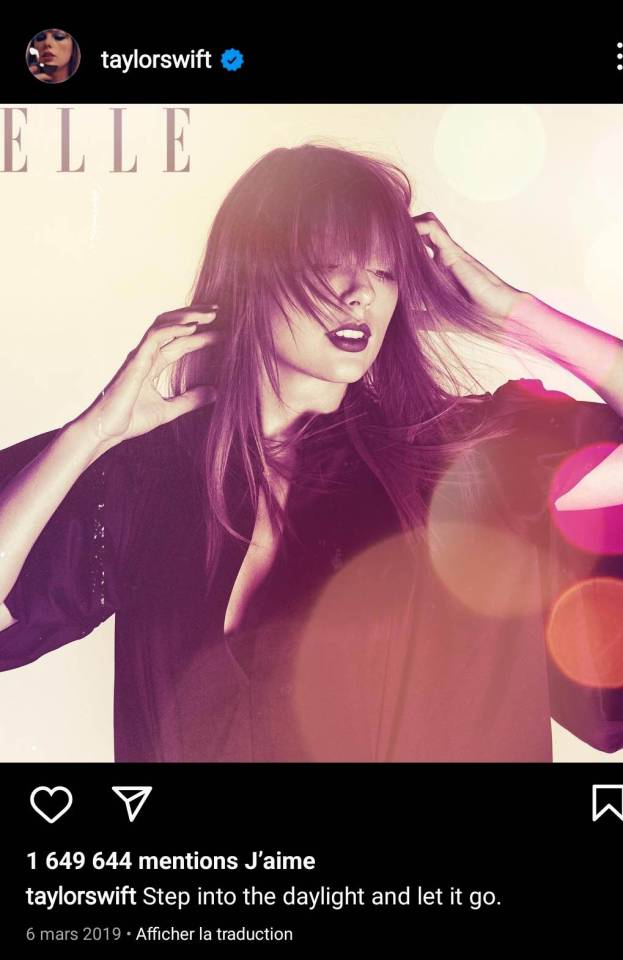
Daylight the song is about Karlie. But this line specifically means coming out.
Stepping into the daylight, and letting everyone see the real you.
(Also worth noting the lesbian filter)
Taylor started being really loud in the posts she made from now on. Flagging rainbow, lesbian and bi colors every chances she got.
And flagging Butterflies. Wich is very important thematically in Lover and coming out.

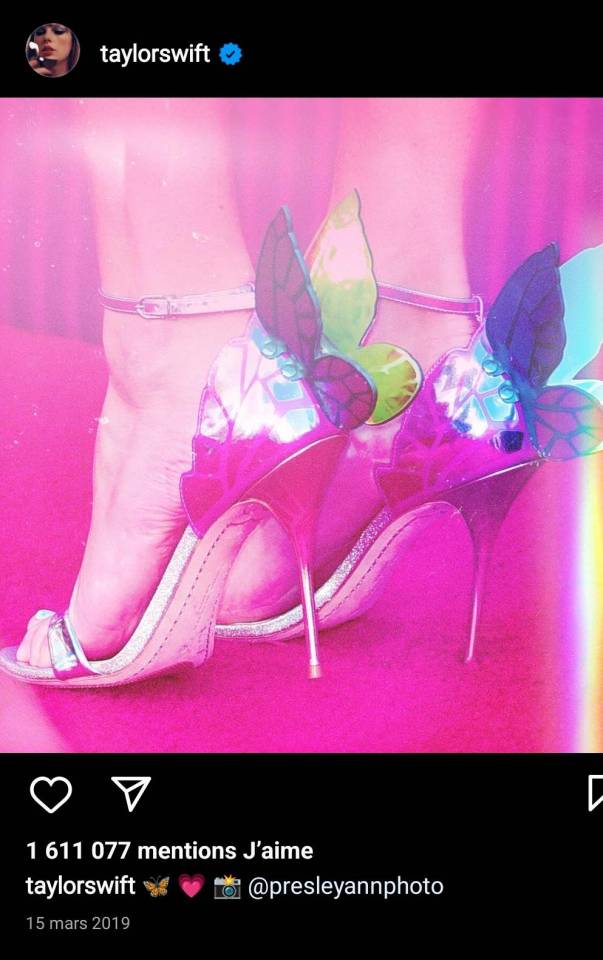
Side note on the Butterfly meaning:
Remembre how in reputation, snake was a really important theme?
And how in Lover it switched to butterflies?
More specifically it switched to Snakes transforming into butterflies?
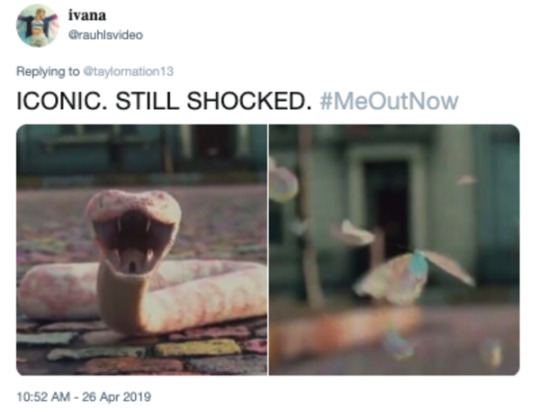
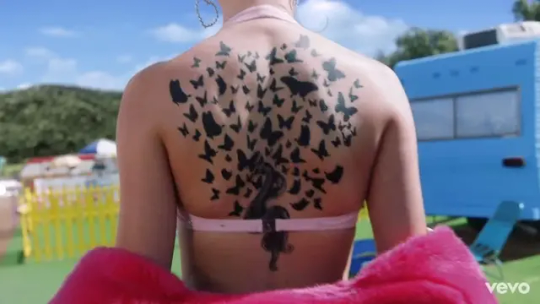
There's a species of butterflies, that when they are in the chrysalid phase of their transformation into a butterfly, can look like a snake if they feel unsafe or attacked in order to protect themselves.

Then, after the average 13 days waiting period, they transforms into a beautiful butterfly.
Basically what Taylor was doing, protecting herself during reputation with that "personna" like she described.
And now, she was ready to finally transforms and have a new beginning.
Here's a description of what butterflies means:
A powerful beacon of growth and new beginnings, the butterfly signifies the power of transformation and the incredible feats we can achieve when we trust ourselves. We all have the ability to listen to our innate wisdom, guide ourselves through difficult times, and emerge better and stronger than before.
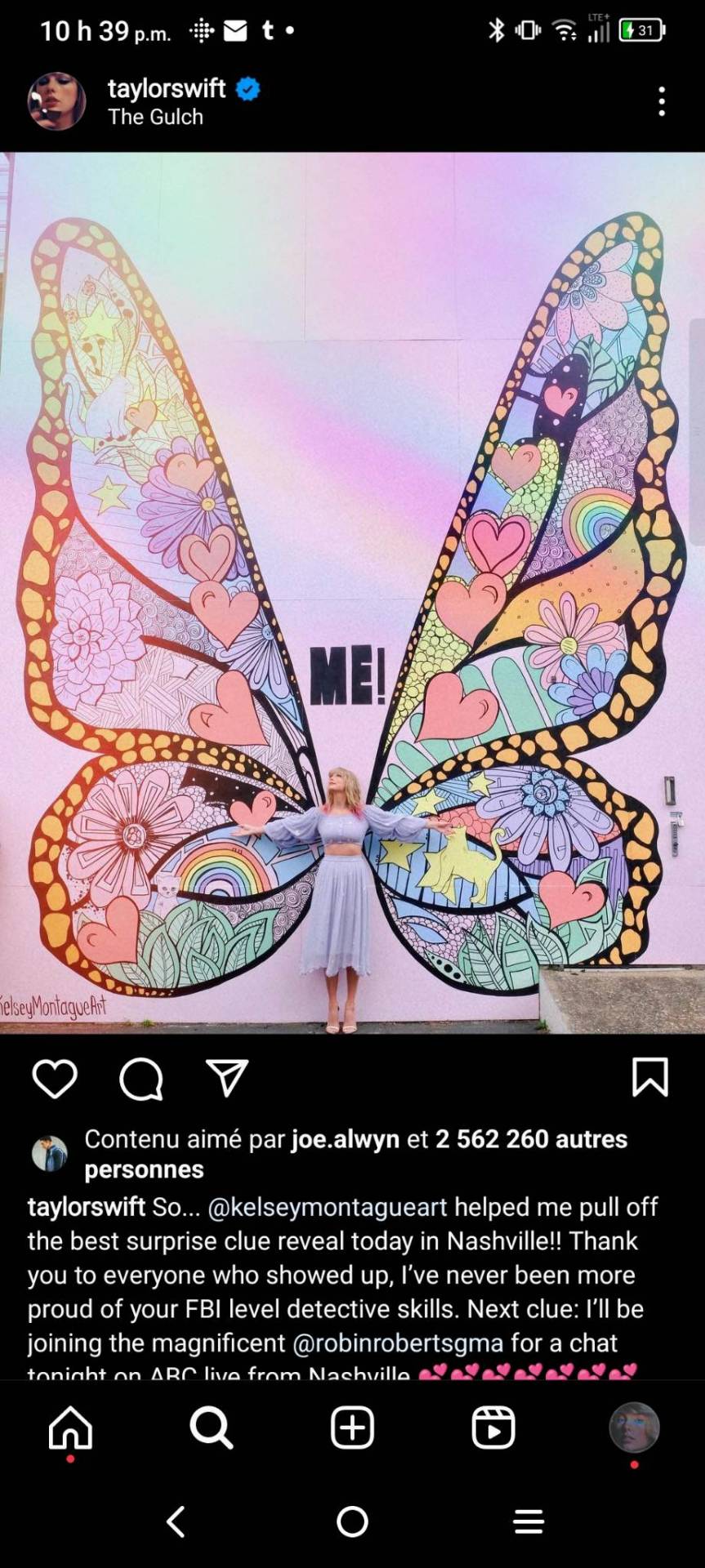
The ME! of it all:
Ok back into the Lover Era timeline!
So all those rainbow posts were leading up to the first single: ME!
Even Taylor Nation was pretty loud about this (number of rainbows = number of days leading to ME! release):

3 days before ME! release, Taylor performs at the Time 100 Gala and it's the first and only time she switched so very clearly pronouns in the song, multiple times:
She sings repeatedly : I want HER midnights
And she even seems to be getting more and more confortable as the song goes on and singing it louder and louder.
She also looks at the crowd while singing it.
Then she releases ME!
That was really the first part of her coming out.
And honnestly, she shouldn't have had to do more than this.
ME! was released on April 26th.
April 26th in 2019 was Lesbian Visibility Day.
And she captionned the release with: ME! Out Now!

A song about how she is unique as a Lover...
That is without mentioning the amount of rainbows everywhere in that MV as well as other references.
Worth noting that in 2019 Lil NasX came out in a MV with the rainbow tower and was annoyed that people didn't get it?
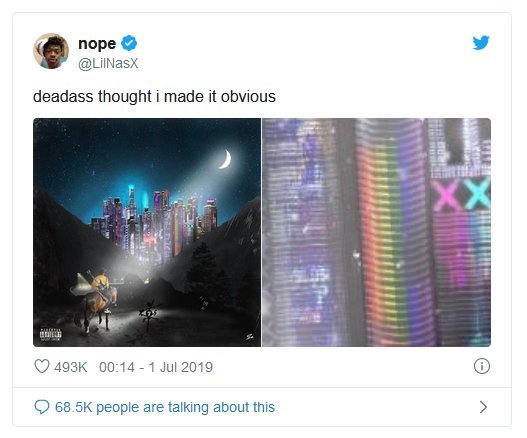
Taylor also probably deadass thought that she made it obvious:
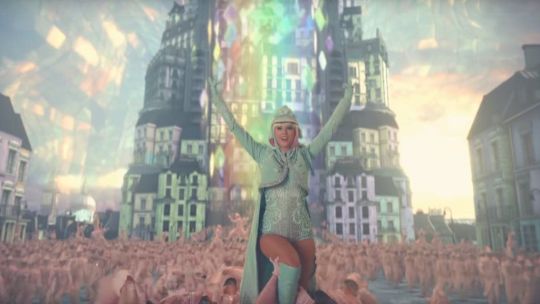
May & June 2019 leading up to the big coming out:
Taylor continues to be as loud as she can.
She makes a very generous donation to GLAAD:
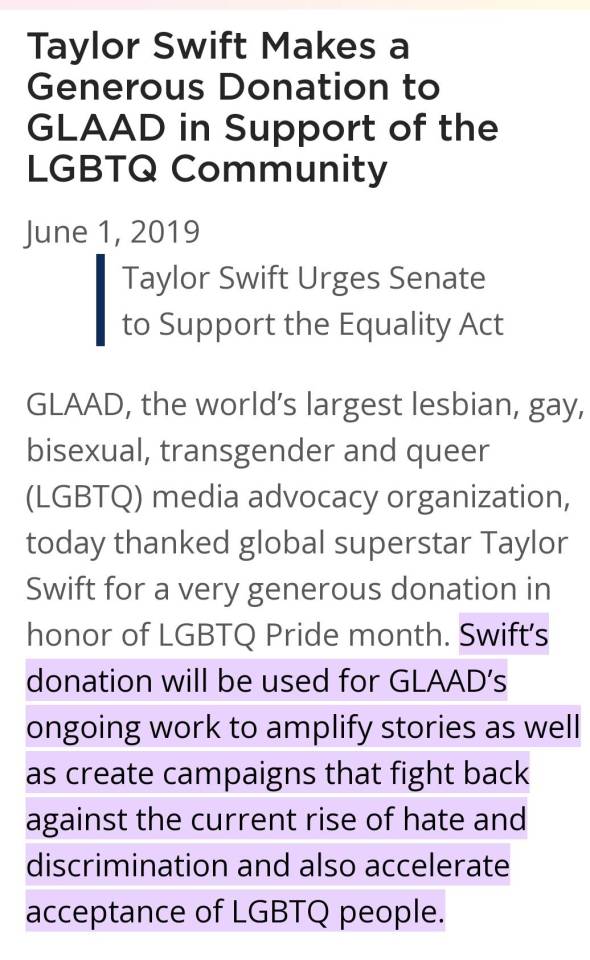
She sings ME! every chances she gets, while flagging the Lesbian Flag.
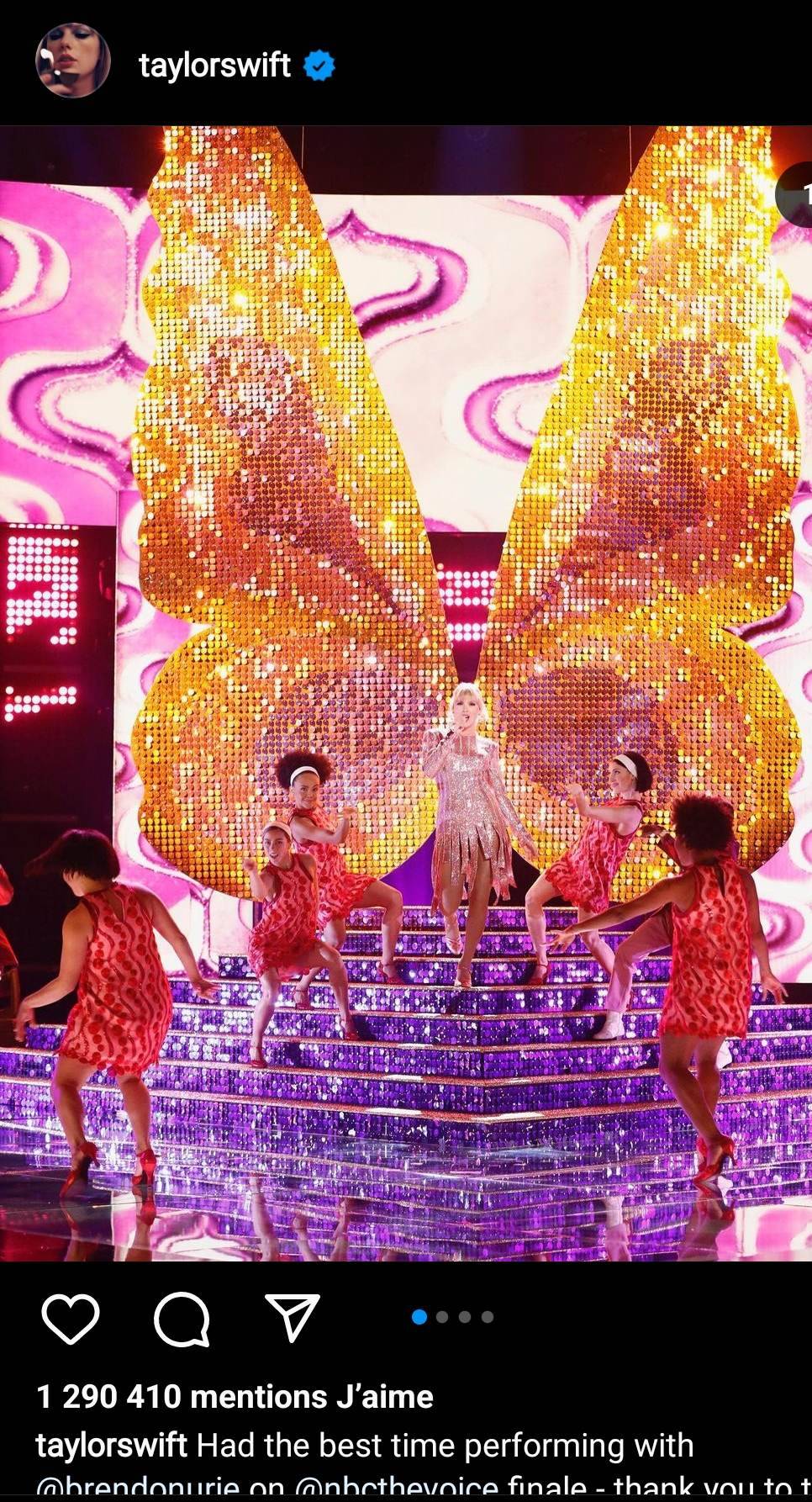

Taylor Nation also keeps on being really loud:

And releases a song and music video about homophobia and includes herself front and centered in the LGBTQ+ community (represented by the Trailer park, note how Ryan Reynolds, the only straight person in the MV is outside of this park, not in it like Taylor).
With a bi flag wig...
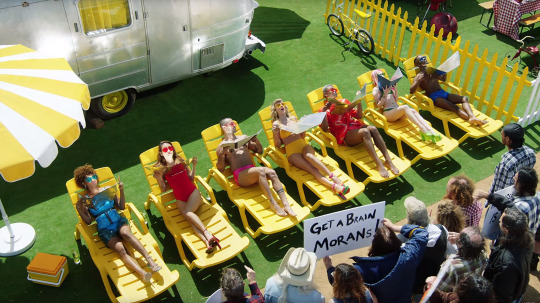

So yeah, she was trying really hard to make people see her.
Christian Siriano and the dress...
Back in April, we learned that Christian Siriano (a fashion designer) was working on a project for Taylor:
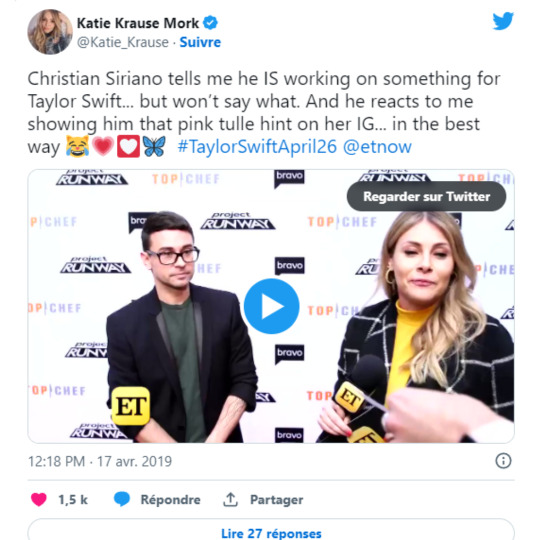
In June, he started teasing us about a mistery rainbow dress for an unnknown person:
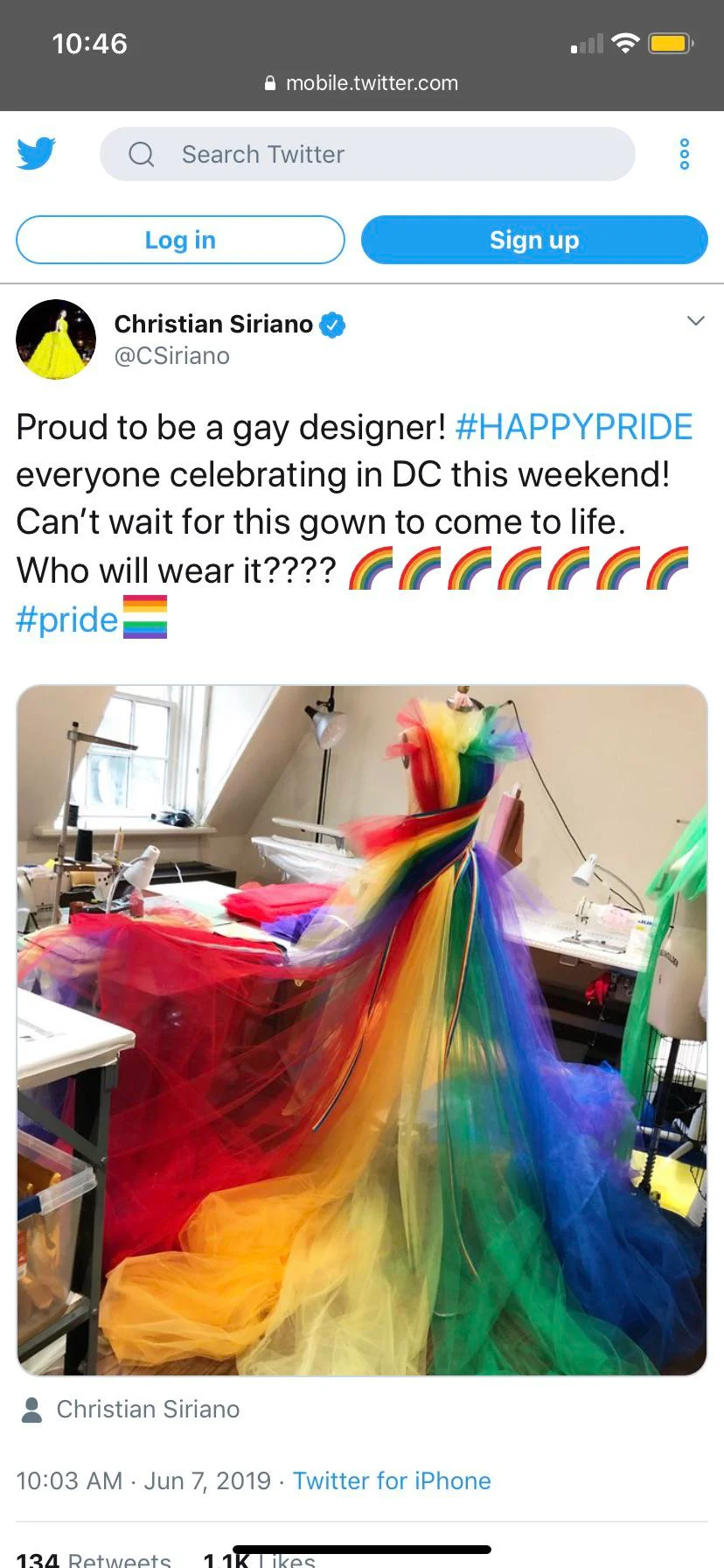
It was heavily rumored that it would be the dress used by Taylor to come out at the end of Pride Month.
He kind of confirmed it with this post:

Then. June 30th.
The New York City Pride.
Taylor planned to come out at the event.
Employees on site, starts to be warned about this (you can find some comments online).
Taylor learns at the same time as us that her masters were sold to Scooter Braun.
She never makes it to Pride.
And Billy Porter ends up wearing the dress:
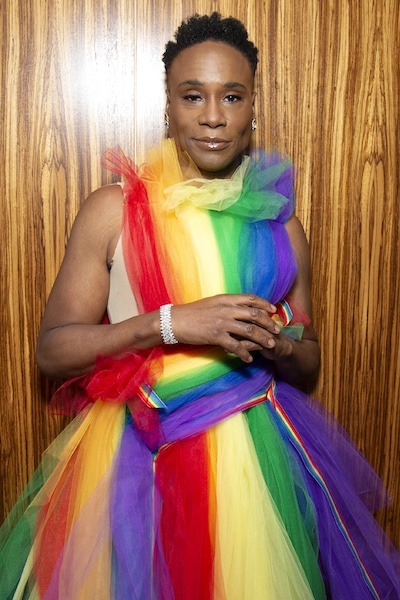
But. You can see that the dress was not meant to be worn by him. It doesn't fit well and the "nude" parts shows that it was meant to be worn by a white person.
In 2022, Christian confirmed it by dueting a TikTok talking specifically about this.
He deleted it right after but you can still find it on TikTok: (X)
Last minutes changes to Lover:
We now know that Taylor scrapped two songs from Lover: All Of The Girls You Loved Before and Need.
All Of The Girls is really loud and very clearly talks about a girl. Wich Taylor couldn't afford if she didn't want to/couldn't come out.
London Boy was actually written and added really last minute to the album.
Really interesting, because this is her loudest song about her loving boyfriend. Wich is a brilliant thing to do if you want to limit the public speculation after all the flagging that you did...
We know it was last minute, because Taylor sampled it on Cold War from Cautious Clay. (X)
He was called in the middle of the night and had to approve the sample right away.
Interesting fact: Cold War was featured in Book Smart, a movie Taylor promoted that year.
The song plays during a lesbian sex scene...
The intro to London Boy is actually Idris Elba in a interview where he was talking about a charity where he sold a date with him.
You know, people paid to date him...
The shift in the Lover Era:
After this, you can start to see a shift. Where it was colorful sequin and rainbows everywhere with colorful choreography.
She now dresses in black, is incredibly sad and sings mostly accousting song.
Like her BBC 1 performance or Lover In Paris:
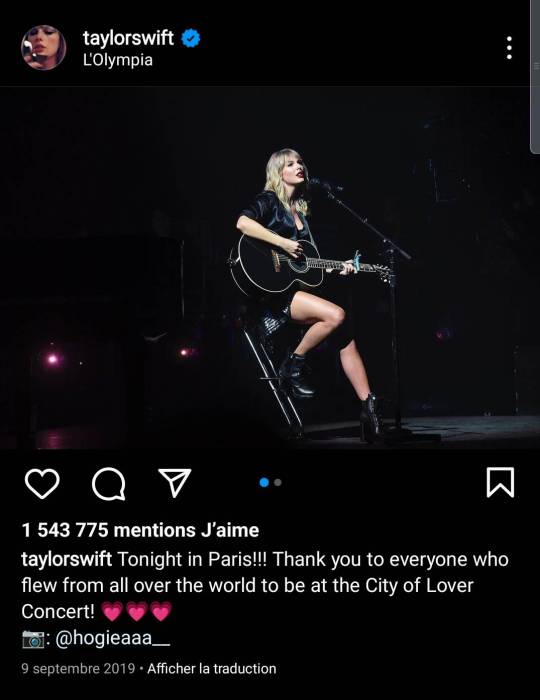
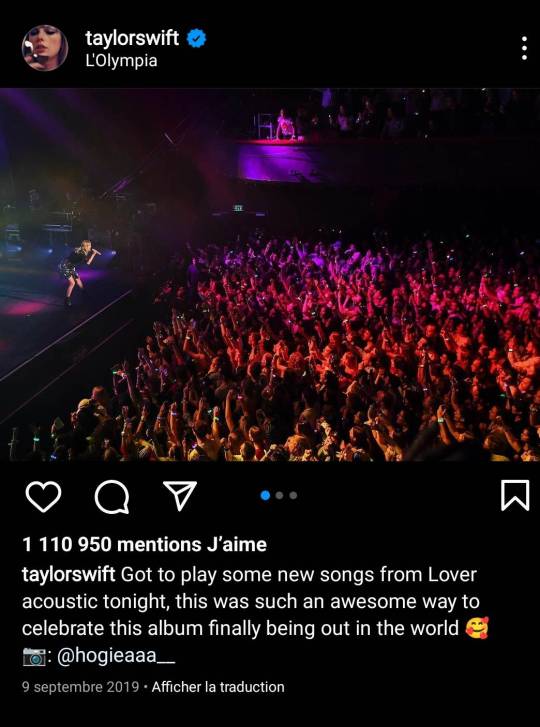
Miss Americana:
Miss Americana was supposed to be her coming out documentary.
It has been confirmed by the director of the project that a lot of footage has been scrapped.
Also, the documentary was supposed to be called : Is It Cool That I Said All That?
This is why the documentary sometimes feels like something is missing and some parts are rushed.
They tried to switch her coming out approach by making it her political activism era.
Taylor confirms it in Anti-Hero MV:
youtube
She's pierced through the heart by The Archer.
Her queerness starts showing (she's bleeding lavender glitters).
She tries to cover it up by taking the table cloth.
Her wanting to cover it spoils the dinner for everyone and they leave her.
And while she sings : "Did you hear my covert narcissism I disguise as altruism, Like some kind of congressman?"
She covers her queerness with a sticker : Vote For Me, For Everything
Confirming that the political activism during Lover Era and mostly Miss Americana was in fact really to cover the fact that she was already one foot out of the closet when they had to backtrack.
With this. Take a look at the closing scene of Miss Americana. When The Archer is playing in the background.
It's a montage of Taylor talking to someone and Taylor on the release night of Lover.
Look at what Taylor says...
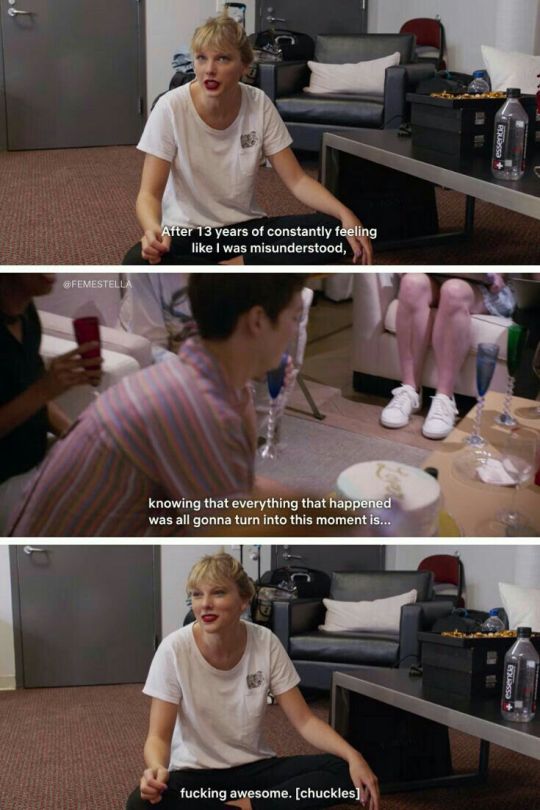
Queerbaiting Backlash:
This might be the worse part in my opinion.
Since she was flagging so hard to come out.
Sadly, most people didn't get that that was exactly what she was trying to do.
And medias massively accused her of queerbaiting.
And using the queer community.
I'm still so mad and heartbroken about this....
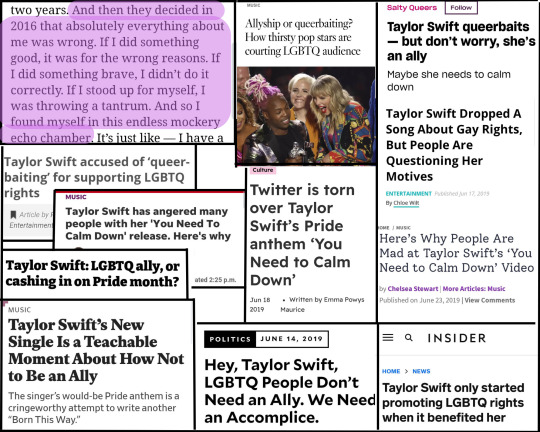
reusing an old Twitter post...
Even queer fans...:
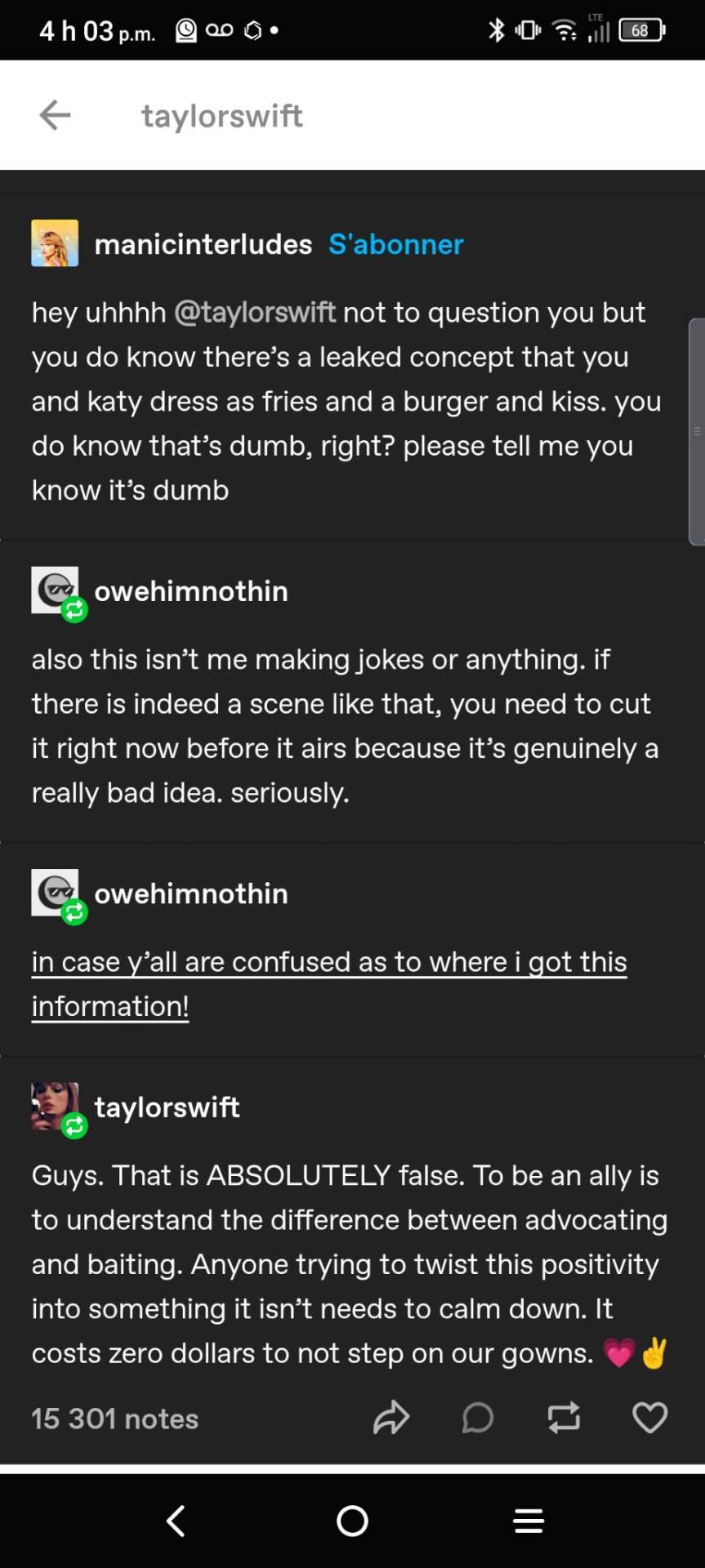
Frankly, speculating about her sexuality would have been way less damaging than this...
Songs about this event:
Taylor wrote a lot about this failed coming out.
The Archer, was her song about her anxiety about coming out. And begging her fans to stay.
I'm not gonna do a full lyrics analysis because this post is already a novel.
But read those lyrics with that in mind and you'll see how loud it is, and heartbreaking.
"I've got a hundred thrown out speeches I almost said to you"
Also. Worth noting that after Lover was released and she was not able to come out, she switched one lyric in that song.
Instead of "Combat, I'm ready for combat" singular (coming out was the combat she was ready to face)
She now sings every time "Combats, I'm ready for Combats", because coming out has turned into multiple battles that she has to face now...
Hoax:
Noticed how she says that all of her heroes die all alone in The Archer?
Her fear that if she comes out, all her fans would leave.
In Hoax she says: "You know the hero died so what's the point of keeping score movie for?"
Because with her Master Heist and everything, she was not able to be one of those heroes herself... The hero that she wanted to be died in that moment because she was unable to come out.
Edit: I messed up the lyrics. But it's even more telling. Because the movie she's talking about is Miss Americana, once she was unable to come out.
Evermore:
This song is litteraly her looking back at what happened and how she managed to process everything and ultimatly heal even though it felt at the start like she would never be able to.
"I've been down since July" - June 30th = failed coming out
"Motion capture, put me in a bad light" - Queerbaiting allegations. And Miss Americana being rebranded.
"Writting letters, adressed to the fire" - Her hundred thrown out speeches that she almost said.
"I rewind the tape, but all it does is pause, on the very moment all was lost" - June 30th...
"Sending signals, to be double crossed" - Her flagging strongly on her way to come out, only to be accused of queerbaiting.

Right Where You Left Me:
The restaurant is a metaphor for the closet.
"Sitting in a corner I haunt, cross legged in the dim light"
Doesn't really feel like a restaurant, but her hiding in the closet.
"I swear, you could hear a hairpin drop. Right when I felt the moment stopped"
Droping hairpins is giving hints that you are gay.
She was doing this very loudly right before she was kept from coming out.
"Dust collected on my pinned up hair"
Her hair are still pinned up because she was not able to come out. And dust collected over time that she spent forced in the closet.
Anti-Hero:
AH is really The Archer 2.0, and talks about the same fear of coming out and being abandonned.
The fact that she decided to depict herself as the Anti-Hero is both really interesting and heartbreaking.
Because to her, the hero was the version of herself that was able to come out...
Listen to Change in the perspective of being able to come out and change the face of the industry:
"Tonight we'll stand, get off our knees
Fight for what we've worked for all these years
And the battle was long, it's the fight of our lives
But we'll stand up champions tonight"
They were the Champions.
Side note: she sang this song at the ACMA in 2010, two weeks before Chely Wright's coming out.
When we know that she has knowed and worked with Chely since about 2007.
Then Taylor wrote Long Live one month after Chely Wright's coming out.
Listen to the song with the same perspective as Change now.
"You held your head like a hero, on a history book page"
Chely Wright came out in May 2010. Taylor wrote Long Live in June 2010.
Look at the parallels of both songs.
And now, look at her choice to name that song Anti-Hero after everything that hapenned....
She also wrote Long Story Short and The Great War about that event, but this is for another post and it's about how this event affected her relationship with Karlie.
How she thought she was betrayed but ultimately found out it was not the case.
And how they both made it through.
Ok, I'm exhausted lol.
Sorry for writting a novel.
But this is such an important part of Taylor's history and I really wanted to do it justice (hope I was able to).
If you are still reading...Thank you for your question!
2K notes
·
View notes
Text
"Friend of Dorothy" explaination (History)
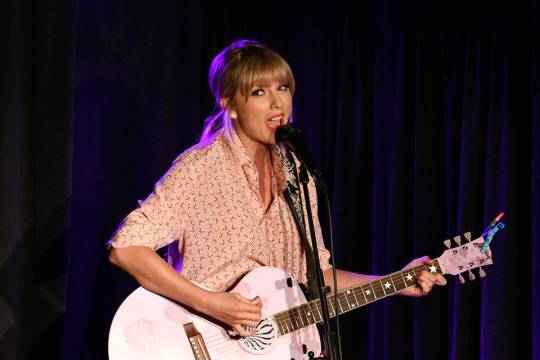

Stonewall Inn in YOU NEED TO CALM DOWN. 2019 Taylor performed at the bar to honor the 50th anniversary of the 1969 Stonewall Riots.

Judy Garland starred in Wizard of Oz and the day she died precipitated the Stonewall Riot. Everyone was in the bar mourning her death and the cops knew Judy was a queer icon & decided easy pickings bc being gay was illegal. So they decided to arrest everyone inside Stonewall.
But instead of an arrest it turned into a Riot and it became a turning point in queer rights or "the hairpin drop heat ‘round the world". And that was the first Pride. (x)

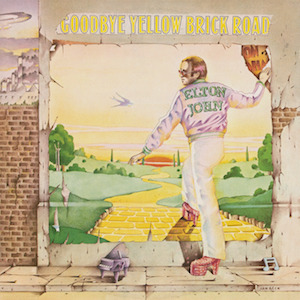
e.g. Elton John used Wizard of Oz as a reference to try to tell people he is gay before formally coming out. (x)
294 notes
·
View notes
Text
Friday December 15th is the 50th anniversary of a significant event in LGBTQ+ history. It's less well known than Stonewall but had a major impact from Day One.
On December 15, 1973, at a time when society often still views gay people as deviants, the American Psychiatric Association reverses a century-old decision, issuing a resolution stating that homosexuality it neither a mental illness nor a sickness. To underline the point, the association removes homosexuality from its influential reference tool, the Diagnostic and Statistical Manual of Mental Disorders.
That description above makes it sound rather dry. To hear about the dramatic events which led up to that decision by the APA, listen to this episode of This American Life from NPR.
81 Words 🏳️🌈
60 notes
·
View notes
Text

June is LGBTQ+ #PrideMonth and the National Archives has many online resources on issues of sexual identity and rights, including articles, educational materials, videos, and blog posts, all based on the records in our holdings.
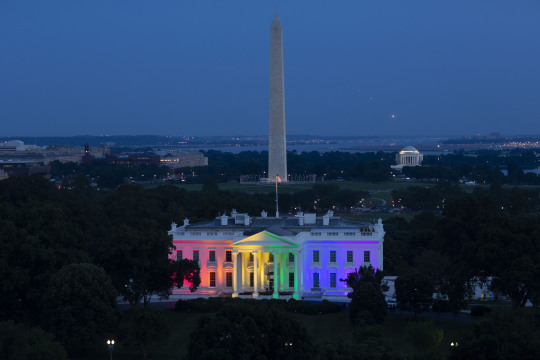
Resources:
Discovering LGBTQ History: Pride Flag Given to President Obama,
Pieces of History: Pride in Protesting: 50th Anniversary of the Stonewall Uprising
Discovering LGBTQ History: Marriage in Minnesota, 1970
The Wedding Heard ’Round the World: America’s First Gay Marriage
Amending America: LGBTQ Human and Civil Rights
Establishment of Stonewall National Monument in the Federal Register
U.S. v. Edith Windsor (gay marriage/Defense of Marriage Act case)
Pieces of History: American Pride for Astronaut Sally Ride
Speech of San Francisco Supervisor Harvey Milk at Gay Freedom Day, June 25, 1978
“Don’t Ask, Don’t Tell” Repeal Act of 2010
DocsTeach: Primary Sources related to LGBTQ+
DocsTeach: The Long Struggle for LGBTQ+ Civil Rights
DocsTeach: “We Are Badly in Need of a Breath of Fresh Air”: A Letter to President Kennedy About LGBTQ+ Rights
93 notes
·
View notes
Text
okay so just like
you've been building up to coming out. you've been teasing it with 2 (?) music videos
one of which is like you as the mayor of gay town where you hired a drag queen of yourself and showed yourself hugging a woman you had had very public beef with and... whole yntcd mv post coming soon lmao
correct me if in wrong but like all of her music videos pre reputation were just like very heterosexual no? like not just made by a straight person but they were about straight relationships (ours, love story, our song*, we are never ever getting back together, wildest dreams, style, etc)
your sm posts are very queer coated, you've been dropping hints and some people are starting to realize
you do a show at stonewall. like stonewall inn. during pride month. you have not come out officially but imagine you're a baby queer, it's one of the first prides where you know you're queer (or that a few other people know you're queer, i don't know what her timeline is lol) and you get to play at stonewall. you got to work with so many queer legends in a personal project about your experience with homophobia. you stared and directed in a music video about all the things that make you you.
i could be wrong on this but wasn't it lover era that she started directing her own mvs?
imagine what an amazing experience that is. you've just moved record labels and have so much more creative control, you have 2 amazing music videos under your belt. you created this big fan arg thing, and a bunch more creatively fulfilling projects in the works for after pride.
you commissioned a queer designer to make a dress for you for pride, you're going to come out. you're going to rip the bandaid off. whether you'd explicitly say it or not, there's not a damn chance a supportive straight person would wear a camp ass rainbow tool ballgown dress to the 50th anniversary of stonewall pride parade. no way. an ally that was hired to perform at pride would wear a t shirt that says support trans kids, some cut off shorts, and a pronoun pin. the would wear something lowkey because they are an ally and pride is not about allies. allies do not deliberately attract attention at pride ESPECIALLY not nyc pride, exactly 50 years after the hairpin drop (no we do not have time to discuss the hairpins) heard round the world.
instead though, on june 30th your work gets stolen. one of the men at the helm of the worst depressive episodes of your life now owns the music you created over the past 13 years. you were at a new record label. you were doing what you wanted, you were calling the shots, you were going to buy your own music at some point soon and then once you owned it, you could license it to movies, you could let other people use it in their work on your own terms. you would be earning money from the things you created. but instead, you found out on what was supposed to be one of the most important days of your life, that the worst person now owns 11 years of your soul. he owns music you wrote about things he caused. he owns music you wrote about neighbors and past loves and about yourself. and you found this out publicly. at the same time that everyone else did.
you can't go to pride now. you cannot wear that dress. you cannot be gay and joyful and happy when the worst thing to happen to you professionally has just happened. so you stay in the closet. you stay half in and half out. you've done all this flagging but for what? your coming out was stolen from you. your plan didn't go through and you can't try again because there will be no pride next year or the year after that, and it wont be the 50 year anniversary. your first music videos for songs that you own will be old news, your album will have already come out; unlike you. you're cut in half, stuck between 2 worlds. you couldn't force yourself back into the closet if you wanted to, but can't come out either, and it's been 5 years
#lmk if i got any of the timeline stuff wronf#*wrong#i joined the fandom at like the tail end of lover so i wasn't in the trenches for this one#gaylor#gaylor swift#don't ask why i wrote this in the second person i don't know either#2019 coming out#friends of dorothea#lgbetty#taylor swift#save tag#lover era#coming out#2019 pride#masters heist#june 30th 2019#. 2019#. text post#2019#glass closet#hairpin drop#. lover era#. masters heist#. coming out
10 notes
·
View notes
Text
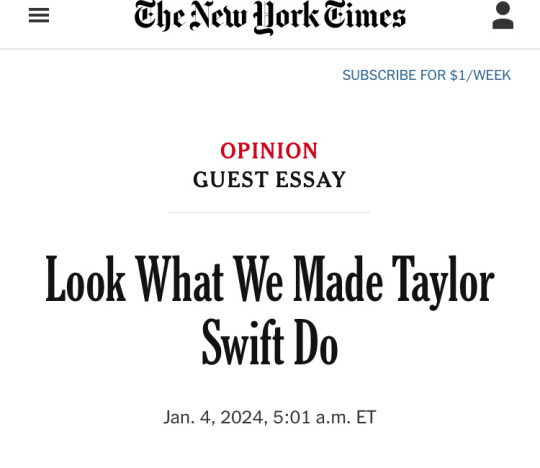
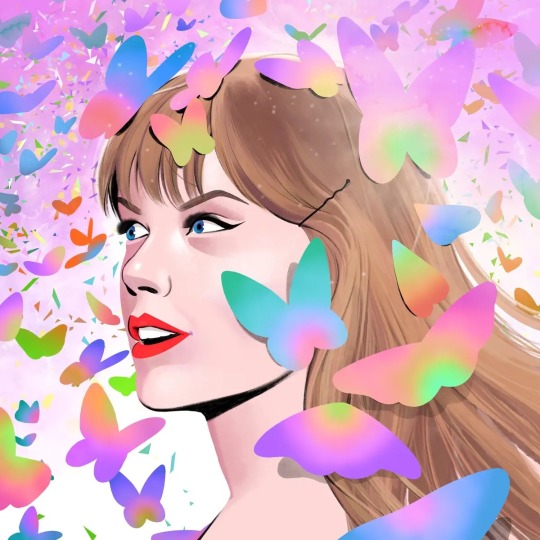
In 2006, the year Taylor Swift released her first single, a closeted country singer named Chely Wright, then 35, held a 9-millimeter pistol to her mouth. Queer identity was still taboo enough in mainstream America that speaking about her love for another woman would have spelled the end of a country music career. But in suppressing her identity, Ms. Wright had risked her life.
In 2010, she came out to the public, releasing a confessional memoir, “Like Me,” in which she wrote that country music was characterized by culturally enforced closeting, where queer stars would be seen as unworthy of investment unless they lied about their lives. “Country music,” she wrote, “is like the military — don’t ask, don’t tell.”
The culture in which Ms. Wright picked up that gun — the same one in which Ms. Swift first became a star — was stunningly different from today’s. It’s dizzying to think about the strides that have been made in Americans’ acceptance of the L.G.B.T.Q. community over the past decade: marriage equality, queer themes dominating teen entertainment, anti-discrimination laws in housing and, for now, in the workplace. But in recent years, a steady drip of now-out stars — Cara Delevingne, Colton Haynes, Elliot Page, Kristen Stewart, Raven-Symoné and Sam Smith among them — have disclosed that they had been encouraged to suppress their queerness in order to market projects or remain bankable.
The culture of country music hasn’t changed so much that homophobia is gone. Just this past summer, Adam Mac, an openly gay country artist, was shamed out of playing at a festival in his hometown because of his sexual orientation. In September, the singer Maren Morris stepped away from country music; she said she did so in part because of the industry’s lingering anti-queerness. If country music hasn’t changed enough, what’s to say that the larger entertainment industry — and, by extension, our broader culture — has?
Periodically, I return to a video, recorded by a shaky hand more than a decade ago, of Ms. Wright answering questions at a Borders bookstore about her coming out. She likens closeted stardom to a blender, an “insane” and “inhumane” heteronormative machine in which queer artists are chewed to bits.
“It’s going to keep going,” Ms. Wright says, “until someone who has something to lose stands up and just says ‘I’m gay.’ Somebody big.” She continues: “We need our heroes.”
What if someone had already tried, at least once, to change the culture by becoming such a hero? What if, because our culture had yet to come to terms with homophobia, it wasn’t ready for her?
What if that hero’s name was Taylor Alison Swift?
In the world of Taylor Swift, the start of a new “era” means the release of new art (an album and the paratexts — music videos, promotional ephemera, narratives — that supplement it) and a wholesale remaking of the aesthetics that will accompany its promotion, release and memorializing. In recent years, Ms. Swift has dominated pop culture to such a degree that these transformations often end up altering American culture in the process.
In 2019, she was set to release a new album, “Lover,” the first since she left Big Machine Records, her old Nashville-based label, which she has since said limited her creative freedom. The aesthetic of what would be known as the “Lover Era” emerged as rainbows, butterflies and pastel shades of blue, purple and pink, colors that subtly evoke the bisexual pride flag.
On April 26, Lesbian Visibility Day, Ms. Swift released the album’s lead single, “ME!,” in which she sings about self-love and self-acceptance. She co-directed a campy music video to accompany it, which she would later describe as depicting “everything that makes me, me.” It features Ms. Swift dancing at a pride parade, dripping in rainbow paint and turning down a man’s marriage proposal in exchange for a … pussy cat.
At the end of June, the L.G.B.T.Q. community would celebrate the 50th anniversary of the Stonewall Riots. On June 14, Ms. Swift released the video for her attempt at a pride anthem, “You Need to Calm Down,” in which she and an army of queer celebrities from across generations — the “Queer Eye” hosts, Ellen DeGeneres, Billy Porter, Hayley Kiyoko, to name a few — resist homophobia by living openly. Ms. Swift sings that outrage against queer visibility is a waste of time and energy: “Why are you mad, when you could be GLAAD?”
The video ends with a plea: “Let’s show our pride by demanding that, on a national level, our laws truly treat all of our citizens equally.” Many, in the press and otherwise, saw the video as, at best, a misguided attempt at allyship and, at worst, a straight woman co-opting queer aesthetics and narratives to promote a commercial product.
Then, Ms. Swift performed “Shake It Off” as a surprise for patrons at the Stonewall Inn. Rumors — that were, perhaps, little more than fantasies — swirled in the queerer corners of her fandom, stoked by a suggestive post by the fashion designer Christian Siriano. Would Ms. Swift attend New York City’s WorldPride march on June 30? Would she wear a dress spun from a rainbow? Would she give a speech? If she did, what would she declare about herself?
The Sunday of the march, those fantasies stopped. She announced that the music executive Scooter Braun, who she described as an “incessant, manipulative” bully, had purchased her masters, the lucrative original recordings of her work.
Ms. Swift’s “Lover” was the first record that she created with nearly unchecked creative freedom. Lacking her old label’s constraints, she specifically chose to feature activism for and the aesthetics of the L.G.B.T.Q. community in her confessional, self-expressive art. Even before the sale of her masters, she appeared to be stepping into a new identity — not just an aesthetic — that was distinct from that associated with her past six albums.
When looking back on the artifacts of the months before that album’s release, any close reader of Ms. Swift has a choice. We can consider the album’s aesthetics and activism as performative allyship, as they were largely considered to be at the time. Or we can ask a question, knowing full well that we may never learn the answer: What if the “Lover Era” was merely Ms. Swift’s attempt to douse her work — and herself — in rainbows, as so many baby queers feel compelled to do as they come out to the world?
There’s no way of knowing what could have happened if Ms. Swift’s masters hadn’t been sold. All we know is what happened next. In early August, Ms. Swift posted a rainbow-glazed photo of a series of friendship bracelets, one of which says “PROUD” with beads in the color of the bisexual pride flag. Queer people recognize that this word, deployed this way, typically means that someone is proud of their own identity. But the public did not widely view this as Ms. Swift’s coming out.
Then, Vogue released an interview with Ms. Swift that had been conducted in early June. When discussing her motivations for releasing “You Need to Calm Down,” Ms. Swift said, “Rights are being stripped from basically everyone who isn’t a straight white cisgender male.” She continued: “I didn’t realize until recently that I could advocate for a community that I’m not a part of.” That statement suggests that Ms. Swift did not, in early June, consider herself part of the L.G.B.T.Q. community; it does not illuminate whether that is because she was a straight, cis ally or because she was stuck in the shadowy, solitary recesses of the closet.
On Aug. 22, Ms. Swift publicly committed herself to the as-of-then-unproven project of rerecording and rereleasing her first six albums. The next day, she finally released “Lover,” which raises more questions than it answers. Why does she have to keep secrets just to keep her muse, as all her fans still sing-scream on “Cruel Summer”? About what are the “hundred thrown-out speeches I almost said to you,” in her chronicle of self-doubt, “The Archer,” if not her identity? And what could the album’s closing words, which come at the conclusion of “Daylight,” a song about stepping out of a 20-year darkness and choosing to “let it go,” possibly signal?
I want to be defined by the things that I love,
Not the things I hate,
Not the things that I’m afraid of, I’m afraid of,
Not the things that haunt me in the middle of the night,
I just think that,
You are what you love.
The first time I viewed “Lover” through the prism of queerness, I felt delirious, almost insane. I kept wondering whether what I was perceiving in her work was truly there or if it was merely a mirage, born of earnest projection.
My longtime reading of Ms. Swift’s celebrity — like that of a majority of her fan base — had been stuck in the lingering assumptions left by a period that began more than a decade and a half ago, when a girl with an overexaggerated twang, Shirley Temple curls and Georgia stars in her eyes became famous. Then, she presented as all that was to be expected of a young starlet: attractive yet virginal, knowing yet naïve, not talented enough to be formidable, not commanding enough to be threatening, confessional, eager to please. Her songs earnestly depicted the fantasies of a girl raised in a traditional culture: high school crushes and backwoods drives, princelings and wedding rings, declarations of love that climax only in a kiss — ideally in the pouring rain.
When Ms. Swift was trying to sell albums in that late-2000s media environment, her songwriting didn’t match the image of a sex object, the usual role reserved for female celebrities in our culture. Instead, the story the public told about her was that she laundered her affection to a litter of promising grown men, in exchange for songwriting inspiration. A young Ms. Swift contributed to this narrative by hiding easy-to-decode clues in liner notes that suggested a certain someone was her songs’ inspiration (“SAM SAM SAM SAM SAM SAM,” “ADAM,” “TAY”) or calling out an ex-boyfriend on the “Ellen” show and “Saturday Night Live.” Despite the expansive storytelling in Ms. Swift’s early records, her public image often cast a man’s interest as her greatest ambition.
As Ms. Swift’s career progressed, she began to remake that image: changing her style and presentation, leaving country music for pop and moving from Nashville to New York. By 2019, her celebrity no longer reflected traditional culture; it had instead become a girlboss-y mirror for another dominant culture — that of white, cosmopolitan, neoliberal America.
But in every incarnation, the public has largely seen those songs — especially those for which she doesn’t directly state her inspiration — as cantos about her most recent heterosexual love, whether that idea is substantiated by evidence or not. A large portion of her base still relishes debating what might have happened with the gentleman caller who supposedly inspired her latest album. Feverish discussions of her escapades with the latest yassified London Boy or mustachioed Mr. Americana fuel the tabloid press — and, embarrassingly, much of traditional media — that courts fan engagement by relentlessly, unquestioningly chronicling Ms. Swift’s love life.
Even in 2023, public discussion about the romantic entanglements of Ms. Swift, 34, presumes that the right man will “finally” mean the end of her persistent husbandlessness and childlessness. Whatever you make of Ms. Swift’s extracurricular activities involving a certain football star (romance for the ages? strategic brand partnership? performance art for entertainment’s sake?), the public’s obsession with the relationship has been attention-grabbing, if not lucrative, for all parties, while reinforcing a story that America has long loved to tell about Ms. Swift, and by extension, itself.
Because Ms. Swift hasn’t undeniably subverted our culture’s traditional expectations, she has managed, in an increasingly fractured cultural environment, to simultaneously capture two dominant cultures — traditional and cosmopolitan. To maintain the stranglehold she has on pop culture, Ms. Swift must continue to tell a story that those audiences expect to consume; she falls in love with a man or she gets revenge. As a result, her confessional songs languish in a place of presumed stasis; even as their meaning has grown deeper and their craft more intricate, a substantial portion of her audience’s understanding of them remains wedded to the same old narratives.
But if interpretations of Ms. Swift’s art often languish in stasis, so do the millions upon millions of people who love to play with the dollhouse she has constructed for them. Her dominance in pop culture and the success of her business have given her the rare ability to influence not only her industry but also the worldview of a substantial portion of America. How might her industry, our culture and we, ourselves, change if we made space for Ms. Swift to burn that dollhouse to the ground?
Anyone considering the whole of Ms. Swift’s artistry — the way that her brilliantly calculated celebrity mixes with her soul-baring art — can find discrepancies between the story that underpins her celebrity and the one captured by her songs. One such gap can be found in her “Lover” era. Others appear alongside “dropped hairpins,” or the covert ways someone can signal queer identity to those in the know while leaving others comfortable in their ignorance. Ms. Swift dropped hairpins before “Lover” and has continued to do so since.
Sometimes, Ms. Swift communicates through explicit sartorial choices — hair the colors of the bisexual pride flag or a recurring motif of rainbow dresses. She frequently depicts herself as trapped in glass closets or, well, in regular closets. She drops hairpins on tour as well, paying tribute to the Serpentine Dance of the lesbian artist Loie Fuller during the Reputation Tour or referencing “The Ladder,” one of the earliest lesbian publications in the United States, in her Eras Tour visuals.
Dropped hairpins also appear in Ms. Swift’s songwriting. Sometimes, the description of a muse — the subject of her song, or to whom she sings — seems to fit only a woman, as it does in “It’s Nice to Have a Friend,” “Maroon” or “Hits Different.” Sometimes she suggests a female muse through unfulfilled rhyme schemes, as she does in “The Very First Night,” when she sings “didn’t read the note on the Polaroid picture / they don’t know how much I miss you” (“her,” instead of that pesky little “you,” would rhyme). Her songwriting also noticeably alludes to poets whose muses the historical record incorrectly cast as men — Emily Dickinson chief among them — as if to suggest the same fate awaits her art. Stunningly, she even explicitly refers to dropping hairpins, not once, but twice, on two separate albums.
In isolation, a single dropped hairpin is perhaps meaningless or accidental, but considered together, they’re the unfurling of a ballerina bun after a long performance. Those dropped hairpins began to appear in Ms. Swift’s artistry long before queer identity was undeniably marketable to mainstream America. They suggest to queer people that she is one of us. They also suggest that her art may be far more complex than the eclipsing nature of her celebrity may allow, even now.
Since at least her “Lover” era, Ms. Swift has explicitly encouraged her fans to read into the coded messages (which she calls “Easter eggs”) she leaves in music videos, social media posts and interviews with traditional media outlets, but a majority of those fans largely ignore or discount the dropped hairpins that might hint at queer identity. For them, acknowledging even the possibility that Ms. Swift could be queer would irrevocably alter the way they connect with her celebrity, the true product they’re consuming.
There is such public devotion to the traditional narrative Ms. Swift embodies because American culture enshrines male power. In her sweeping essay, “Compulsory Heterosexuality and Lesbian Existence,” the lesbian feminist poet Adrienne Rich identified the way that male power cramps, hinders or devalues women’s creativity. All of the sexist undertones with which Ms. Swift’s work can be discussed (often, even, by fans) flow from compulsory heterosexuality, or the way patriarchy draws power from the presumption that women naturally desire men. She must write about men she surely loves or be unbankable; she must marry and bear children or remain a child herself; she must look like, in her words, a “sexy baby” or be undesirable, “a monster on the hill.”
A woman who loves women is most certainly a monster to a society that prizes male power. She can fulfill none of the functions that a traditional culture imagines — wife, mother, maid, mistress, whore — so she has few places in the historical record. The Sapphic possibility of her work is ignored, censored or lost to time. If there is queerness earnestly implied in Ms. Swift’s work, then it’s no wonder that it, like that of so many other artists before her, is so often rendered invisible in the public imagination.
While Ms. Swift’s songs, largely written from her own perspective, cannot always conform to the idea of a woman our culture expects, her celebrity can. That separation, between Swift the songwriter and Swift the star, allows Ms. Swift to press against the golden birdcage in which she has found herself. She can write about women’s complexity in her confessional songs, but if ever she chooses not to publicly comply with the dominant culture’s fantasy, she will remain uncategorizable, and therefore, unsellable.
Her star — as bright as it is now — would surely dim.
Whether she is conscious of it or not, Ms. Swift signals to queer people — in the language we use to communicate with one another — that she has some affinity for queer identity. There are some queer people who would say that through this sort of signaling, she has already come out, at least to us. But what about coming out in a language the rest of the public will understand?
The difference between any person coming out and a celebrity doing so is the difference between a toy mallet and a sledgehammer. It’s reasonable for celebrities to be reticent; by coming out, they potentially invite death threats, a dogged tabloid press that will track their lovers instead of their beards, the excavation of their past lives, a torrent of public criticism and the implosion of their careers. In a culture of compulsory heterosexuality, to stop lying — by omission or otherwise — is to risk everything.
American culture still expects that stars are cis and straight until they confess themselves guilty. So, when our culture imagines a celebrity’s coming out, it expects an Ellen-style announcement that will submerge the past life in phoenix fire and rebirth the celebrity in a new image. In an ideal culture, wearing a bracelet that says “PROUD,” waving a pride flag onstage, placing a rainbow in album artwork or suggestively answering fan questions on Instagram would be enough. But our current reality expects a supernova.
Because of that expectation, stars end up trapped behind glass, which is reinforced by the tabloid press’s subtle social control. That press shapes the public’s expectations of others’ identities, even when those identities are chasms away from reality. Celebrities who master this press environment — Ms. Swift included — can bolster their business, but in doing so, they reinforce a heteronormative culture that obsesses over pregnancy, women’s bodies and their relationships with men.
That environment is at odds with the American movement for L.G.B.T.Q. equality, which still has fights to win — most pressingly, enshrining trans rights and squashing nonsensical culture wars. But lately I’ve heard many of my young queer contemporaries — and the occasional star — wonder whether the movement has come far enough to dispense with the often messy, often uncomfortable process of coming out, over and over again.
That questioning speaks to an earnest conundrum that queer people confront regularly: Do we live in this world, or the world to which we ought to aspire?
Living in aspiration means ignoring the convention of coming out in favor of just … existing. This is easier for those who can pass as cis and straight if need be, those who are so wealthy or white that the burden of hiding falls to others and those who live in accepting urban enclaves. This is a queer life without friction; coming out in a way straight people can see is no longer a prerequisite for acceptance, fulfillment and equality.
This aspiration is tremendous, but in our current culture, it is available only to a privileged few. Should such an inequality of access to aspiration become the accepted state of affairs, it would leave those who can’t hide to face society’s cruelest actors without the backing of a vocal, activated community. So every queer person who takes issue with the idea that we must come out ought to ask a simple question — what do we owe one another?
If coming out is primarily supposed to be an act of self-actualization, to form our own identities, then we owe one another nothing. This posture recognizes that the act of coming out implicitly reinforces straight and cis identities as default, which is not worth the rewards of outness.
But if coming out is supposed to be a radical act of resistance that seeks to change the way our society imagines people to be, then undeniable visibility is essential to make space for those without power. In this posture, queer people who can live in aspiration owe those who cannot a real world in which our expansive views of love and gender aren’t merely tolerated but celebrated. We have no choice but to actively, vocally press against the world we’re in, until no one is stuck in it.
And so just for a little while longer, we need our heroes.
But if queer people spend all of our time holding out for a guiding light, we might forgo a more pressing question that if answered, just might inch all of us a bit closer to aspiration. The next time heroes appear, are we ready to receive them?
It takes neither a genius nor a radical to see queerness implied by Ms. Swift’s work. But figuring out how to talk about it before the star labels herself is another matter. Right now, those who do so must inject our perceptions with caveats and doubt or pretend we cannot see it (a lie!) — implicitly acquiescing to convention’s constraints in the name of solidarity.
Lying is familiar to queer people; we teach ourselves to do it from an early age, shrouding our identities from others, and ourselves. It’s not without good reason. To maintain the safety (and sometimes the comfort) of the closet, we lie to others, and, most crucially, we allow others to believe lies about us, seeing us as something other than ourselves. Lying is doubly familiar to those of us who are women. To reduce friction, so many of us still shrink life to its barest version in the name of honor or safety, rendering our lives incomplete, our minds lobotomized and our identities unexplored.
By maintaining a culture of lying about what we, uniquely, have the knowledge and experience to see, we commit ourselves to a vow of silence. That vow may protect someone’s safety, but when it is applied to works of culture, it stymies our ability to receive art that has the potential to change or disrupt us. As those with queer identity amass the power of commonplaceness, it’s worth questioning whether the purpose of one of the last great taboos that constrains us befits its cost.
In every case, is the best form of solidarity still silence?
I know that discussing the potential of a star’s queerness before a formal declaration of identity feels, to some, too salacious and gossip-fueled to be worthy of discussion. They might point to the viciousness of the discourse around “queerbaiting” (in which I have participated); to the harm caused by the tabloid press’s dalliances with outing; and, most crucially, to the real material sacrifices that queer stars make to come out, again and again, as reasons to stay silent.
I share many of these reservations. But the stories that dominate our collective imagination shape what our culture permits artists and their audiences to say and be. Every time an artist signals queerness and that transmission falls on deaf ears, that signal dies. Recognizing the possibility of queerness — while being conscious of the difference between possibility and certainty — keeps that signal alive.
So, whatever you make of Ms. Swift’s sexual orientation or gender identity (something that is knowable, perhaps, only to her) or the exact identity of her muses (something better left a mystery), choosing to acknowledge the Sapphic possibility of her work has the potential to cut an audience that is too often constrained by history, expectation and capital loose from the burdens of our culture.
To start, consider what Ms. Swift wrote in the liner notes of her 2017 album, “reputation”: “When this album comes out, gossip blogs will scour the lyrics for the men they can attribute to each song, as if the inspiration for music is as simple and basic as a paternity test.”
Listen to her. At the very least, resist the urge to assume that when Ms. Swift calls the object of her affection “you” in a song, she’s talking about a man with whom she’s been photographed. Just that simple choice opens up a world of Swiftian wordplay. She often plays with pronouns, trading “you” and “him” so that only someone looking for a distinction between two characters might find one. Turns of phrase often contain double or even triple meanings. Her work is a feast laid specifically for the close listener.
Choosing to read closely can also train the mind to resist the image of an unmarried woman that compulsory heterosexuality expects. And even if it is only her audience who points at rainbows, reading Ms. Swift’s work as queer is still worthwhile, for it undermines the assumption that queer identity impedes pop superstardom, paving the way for an out artist to have the success Ms. Swift has.
After all, would it truly be better to wait to talk about any of this for 50, 60, 70 years, until Ms. Swift whispers her life story to a biographer? Or for a century or more, when Ms. Swift’s grandniece donates her diaries to some academic library, for scholars to pore over? To ensure that mea culpas come only when Ms. Swift’s bones have turned to dust and fragments of her songs float away on memory’s summer breeze?
I think not. And so, I must say, as loudly as I can, “I can see you,” even if I risk foolishness for doing so.
I remember the first time I knew I had seen Taylor Alison Swift break free from the trap of stardom. I wasn’t sitting in a crowded stadium in the pouring rain or cuddled up in a movie theater with a bag of popcorn. I was watching a grainy, crackling livestream of the Eras Tour, captured on a fan’s phone.
It’s late at night, the beginning of her acoustic set of surprise songs, this time performed in a yellow dress. She begins playing “Hits Different.” It’s a new song, full of puns, double entendres and wordplay, that toys with the glittering identities in which Ms. Swift indulges.
She’s rushing, as if stopping, even for a second, will cause her to lose her nerve. She stumbles at the bridge, pauses and starts again; the queen of bridges will not mess this up, not tonight.
There it is, at the bridge’s end: “Bet I could still melt your world; argumentative, antithetical dream girl.” An undeniable declaration of love to a woman. As soon as those words leave her lips, she lets out a whoop, pacing around the stage with a grin that cannot be contained.
For a moment, Ms. Swift was out of the woods she had created for herself as a teenager, floating above the trees. The future was within reach; she would, and will, soon take back the rest of her words, her reputation, her name. Maybe the world would see her, maybe it wouldn’t.
But on that stage, she found herself. I was there. Through a fuzzy fancam, I saw it.
And somehow, that was everything.
#nyt x Gaylor swift#Gaylor swift x the msm#mainstream media x gaylor swift#gaylor fandom#Swiftgron#Taymily#tily#the New York Times article
28 notes
·
View notes
Text



A bit early in my Oregon time zone, but in many places in the world it's already 28 June 2024, the 55th anniversary of the Stonewall Rebellion.
HAPPY PRIDE to all my QUILTBAG siblings and niblings and elders!
To counter some misinformation spread by transphobes, some helpful URLS
What Stonewall means to the people who were there
Gay rights pioneer & AIDS activist Yvonne Ritter shares personal experience in Stonewall Riots who is the third from left in Fred McDarrah's photo of gay youths at Stonewall -- and is an out and proud trans woman
Audio interviews on the first Christopher Street Day taken by Breck Ardery (2 sides)
Guardian article on the 50th anniversary of the Stonewall Rebellion
Village Voice onthe 40th anniversary
The Atlantic about Craig Rodwell's Oscar Wilde Bookshop
Interview with Craig Rodwell on Making Gay History
NPS's Virtual Fence Exhibit
Some of Fred McDarrah's Pride Photos, ccn( first page) and NY1.com (second page )
1999 article on Stonewall orig published in Socialism Today
Portrait of Craig Rodwell and Pride
Christopher Park Stonewall National Monument article: https://www.nyclgbtsites.org/site/christopher-park/
(And nothing about Fred Sargggghgent bc I find it reprehensible that he waited until Craig Rodwell was dead to start stealing Craig's thunder. Plus, you know, literal cop)
#Stonewall Rebellion#Happy Pride!#QUILTBAG#Yvonne Ritter#Breck Ardery#Bettye Lane#the Stonewall cross-dressing lesbian#Christopher Street#Stonewall Riot#Craig Rodwell#Oscar Wilde Bookshop#Making Gay History#Fred McDarrah#Stonewall#Gay History#Queer History#Trans History
9 notes
·
View notes
Text
Happy Sixth Day of Pride Month! The virtual Pride parade continues. If my health and schedule permit, I will make a post like this every day in June.

Toronto Realtor Julie Kinnear posted this among many photos of Toronto Pride 2019, noting that it was the 50th anniversary of the Stonewall Riots. Here we see cosplayers wearing Imperial Stormtrooper and Imperial Navy uniforms with non-regulation rainbow garnish and flying Alliance flags ditto. NERD PRIDE, say the signs.
I am old enough to remember when writing fanfic--not just the wrong kind of fanfic, but fanfic at all--was a thing you did not confess except to other nerds and maybe not even them. You could lose the respect of your parents, coworkers, or boss. You could lose your marriage and the right to see your kids. Cosplay was for no-life loser freaks who did it far away from home and hoped that nobody with the power to decide their future ever saw it. And when the weirdos raised money for a cause, it was reported with a joke headline. Even other nerds--the "right" kind--mocked them. I remember the Geek Hierarchy.
Nerds are mainstream now. Kinnear did not caption this photo, but based on the sheer quality of the costuming I guess that this is the 501st, which is a cosplay club founded by fans, but provided with an official backstory by Lucasfilm after the fact. They do charity work at public libraries and children's hospitals and raise money for Make-a-Wish. They have 14,000 members and a professionally designed website. Nerds are mainstream now.
But I remember.
Let's keep the days of the Geek Hierarchy in the past. If we fight for the right of every odriew, everybody who cares entirely too much about something we think is bmud or contemptible or even yucky, to be who they are with cheerful confidence, we are fighting for our own rights too.
Ever seen an Imperial Stormtrooper dance? It's cornball and awesome and so, so nerdy. The DJ turns up "People Like Us" by Kelly Clarkson, to give them a hint.
youtube
3 notes
·
View notes
Text
My band director is making us play a song made as tribute to the 50th anniversary of the Stonewall riots, AND Trans women in particular. I’m happy.
5 notes
·
View notes
Text
The 16th Annual Madonna Worship Night
Friday, August 16th 10pm
3 Dollar Bill, Brooklyn
🎟️ in bio 👑👑👑
After taking his Madonna Worship party on tour this Winter/Spring to coincide with Madonna’s Celebration Tour, making stops in Houston, Miami, Denver and eventually Fire Island, The House Of Dandridge has garnered quite a reputation for being one of the most unique and creative events celebrating the legacy of Madonna, The Queen of Pop! DJ Chauncey D take the helm and spin Madonna tracks and remixes, from rare to popular, from within her entire 40+ year career to a jubilant, packed to a capacity crowd of Madonna super-fans and novices alike. After an amazing turnout in August of 2023, we return to the fantastic mega club # $ Bill to celebrate properly once again on her actual BIRTHDAY on Friday, August 16th.
ALL MADONNA ALL NIGHT BY
DJ CHAUNCEY D and more to be announced!
Expect show-stopping Queen of Pop tribute performances from some of NYC’s finest.
BENJY BRADSHAW
CARLOS ACOSTA
COMA WHITE with JESSICA ROSE, RUBY SLAY & FRIDA COX
CRAIG WINBERRY
CRYSTAL COMEDOWNS
DARLING TOBY
JAYSE VEGAS
LAILAH LANCING
MAKON MAYHEM
TBOY
VEGAS VALENTINE
VELVET STARDUST
& LA DIVA CICCONE!
Don't miss the party.... https://www.seetickets.us/event/The-16th-Annual-Madonna-Worship-Night/582683
For 16 years, DJ Chauncey D has celebrated The Queen of Pop’s birthday each August in NYC with his famous Madonna Worship Night. Originally conceived at Nowhere Bar in the East Village in 2009, the all Madonna all-night dance party eventually relocated to the world-famous Stonewall Inn in the heart of the West Village in Manhattan, the very room Madonna herself kicked off the 50th anniversary of The Stonewall Riots on New Year’s Eve 2019 with a very special surprise appearance and performance.
The night features curated performances by New York nightlife talent and encompasses every inch of her forty-year career with popular hits, b-sides, rarities, and remixes throughout the night!
#madonnaworship #happybirthdaymadonna #likeaprayer #madonna #queenmothermadonna #madonnalouiseveronicaciccone
#Madonna#djchaunceyd#houseofdandridge#mdna#lgbt#blond ambition#madonna worship#brooklyn#3 dollar bill#madonna
1 note
·
View note
Text

Everette Lynn Harris (June 20, 1955 – July 23, 2009) was an author. Openly gay, he was known for his depictions of African American men who were on the down low and closeted. He authored ten consecutive books that made The New York Times Best Seller list, making him among the most successful African-American or gay authors of his era.
He became the first African American male cheerleader as well as the first African American yearbook editor while attending the University of Arkansas. He became a computer salesman with IBM, AT&T, and Hewlett-Packard for 13 years living in Dallas, DC, and Atlanta. He relieved himself of his salesman duties and quit to begin writing his first novel. He was unable to land a book deal with a publishing house for his first work, Invisible Life, so he published it himself and sold copies from his car trunk. He was published by Doubleday, and ten of his novels achieved New York Times bestseller status.
He returned to the University of Arkansas to teach African American Fiction.
He had penned a personal memoir, What Becomes of the Brokenhearted.
He was one of the inaugural fifty American “pioneers, trailblazers, and heroes” inducted on the National LGBTQ Wall of Honor within the Stonewall National Monument in New York City’s Stonewall Inn. The SNM is the first national monument dedicated to LGBTQ rights and history, and the wall’s unveiling was timed to take place during the 50th anniversary of the Stonewall riots. #africanhistory365 #africanexcellence #alphaphialpha
1 note
·
View note
Text
This weekend, New York City had its first homosexual riots
New Post has been published on https://qnews.com.au/this-weekend-new-york-city-had-its-first-homosexual-riots/
This weekend, New York City had its first homosexual riots

An article in Newsday, June 30, 1969, records what the author calls New York City’s ‘first homosexual riots’.
Scroll down to read the Newsday article in full.
“The boys who call themselves girls can be seen each night on Christopher Street, leaning against the buildings…
“They are homosexuals, the kind who choose not to hide it…
“They rarely accost strangers… they rarely break the law… they are allowed to live in peace.
“That is how it has been for years. That is how it was until this weekend. But this weekend, New York experienced something new. This weekend, New York City had its first homosexual riots.”
In recent years, arguments over who threw the first brick at Stonewall and whether trans women have usurped the place of more deserving activists have become common.
So, it is interesting to read the newspaper articles in the days immediately following the riots. Those articles make it clear that despite varied terminologies and identities, trans women played a significant role in the riots. Photos taken during the week also show trans women of colour taking prominent roles.
In fact, looking at the pics and reading personal accounts of the week, many of the participants may have identified as poor, marginalized, and outcast before anything else.
And those people have always stuck together, be they gay, lesbian, bi, trans…
Their resilience carried our communities through dark days.
So, instead of arguing over who threw a f*cking brick, let’s focus on our greatest strength – our diversity.

Stonewall Riots 30 Jun 1969, Mon Newsday (Nassau Edition) (Hempstead, New York) Newspapers.com
Out, loud and proud…
Know your PRIDE history: Are you a friend of Dorothy?
Friends of Dorothy: Judy Garland, PRIDE icon.
Editorial: Stonewall Riots 50th Anniversary matters.
For the latest LGBTIQA+ Sister Girl and Brother Boy news, entertainment, community stories in Australia, visit qnews.com.au. Check out our latest magazines or find us on Facebook, Twitter, Instagram and YouTube.
1 note
·
View note
Text
A question of pride in a global community

Since the early 1970s, June has been known as Pride Month. Every year, June marks the anniversary of the Stonewall riots, a series of protests that occurred in Greenwich Village, New York City, after police attempted to raid the Stonewall Inn, a popular gay bar, on June 28, 1969.
As Charity Digital reported, the first London Pride was held in 1972 on the anniversary of the Stonewall riots. Around 2000 people attended. Last year, in 2022, on the 50th anniversary of the first march in the UK, over 1.5 million people attended London Pride.
As the Pink Times explained, since the late 1980s, fundraising events have been held over the August bank holiday weekend in Manchester, in a bid to raise money for the LGBTQ+ community.
At the time of its birth, homophobia remained rife and in 1988 an anti-Section 28 protest was held in Manchester, against the law that prohibited the “promotion of sexuality”. The law was in effect until the year 2000 in Scotland and 2003 in England and Wales.
In the summer of 1991, Manchester’s Village Charity formed the Mardi Gras festival, which raised £15,000 for HIV and AIDS. In 2022, the charity raised a staggering £120,062.38 for LGBTQ+ good causes in the city.
Manchester Pride will kick off on Friday, 25th August, with celebrations rounding up on Monday, 28 August 2023. Across the August Bank Holiday, Pride events contribute around £34 million to Manchester’s economy.
#manchester#uk#liverpool#hussein al-alak#london#scotland#usa#lgbt pride#lgbtq#lgbtqia#lgbtq community#healthcare#tourism#tourist
0 notes
Text
i'm not sure
The one thing I’ve ever been sure about in my life is that I love art, the rest has always been iffy.
May 2013, Blue Sky Studio’s Epic releases in theaters.
I am six years old and in first grade. I do Ballet, Tap, and Jazz, I don’t like Ballet, but my mom won’t let me quit. I like to dance and sing and draw and laugh. I watch Powerpuff Girls and Veggietales with my brothers and sister. My favorite colors are pink and purple, because they go together. I like to make cookies with my Mimi in her kitchen and sit next to her by her green chair while we clip coupons in the family room. My sister goes to college at UTA and when I sleepover at her apartment we play on her Wii. I like Donkey Kong, but we play just dance and Wii sports too. It’s cool having a big sister but it’s weird because when we go to the mall people think she’s my mom and nobody at school knows what half-siblings are.
August 14, 2014, Robin Williams passes away.
I am eight years old in third grade when I first experience death. I walk out of my room on a Monday morning and see my cousin in the hallway. I don’t know why I’m not in school yet but I’m not one to complain. Later my parents pull me into their bedroom and sit me down on their bed. When they tell me, I feel something guttural escape me. I block out most of my memories from that week. In the limo after the service, my aunt pores over a small gold cross, Jesus stretched across it. I don’t go back to school for the next few days, but when I do, I do not feel welcome. All I want to do is look away and stare into space, but the moment I enter I see the check in board. Absent – Grandmother passed away. Immediately I am bombarded with questions from people who I was sure hated me. I feel sick. I spend the next three months isolating myself in the counselor’s office.
November 3, 2016, Donald Trump is elected president.
I am ten years old in fifth grade when my “best friend” tells me she hopes Donald Trump wins the election. When I ask her why she says it’s because of the economy. But what about the horrible things he says about women and minorities?
“Well obviously I don’t support that part.”
If it’s obvious, why do you have to say it? And how do you value economics over people’s lives? How can you live with yourself when you do that? I don’t understand, but I have to stay her friend, it’s not like I have anyone else.
June 28, 2019, the 50th anniversary of the Stonewall Riots is celebrated.
I am thirteen and just finished seventh grade , and I think I like my friend. We met in theater and she’s cool and effortless and funny, but most importantly, she doesn’t think I’m weird, finally, somebody doesn’t think I’m weird. I want to tell her, but I also want to never see her again, so I won’t have to.
March 11, 2020, the WHO declares COVID-19 a pandemic.
I am thirteen years old in eighth grade and my birthday is in seven days. My boyfriend just broke up with me and when he tells me why it doesn’t sound like the whole truth. It seems like the worst week of my life. No birthday party because it’s spring break, everyone else is at home because of this “COVID” thing, and lately I just feel empty. I call up my friend Mabel to see if they can come over, and we drown out the pain with green splat hair dye and bad pop punk.
By the end of 2020, 44 trans people are murdered in the United States.
I am fourteen years old in my freshman year and as I open my phone, I see more notifications pop up in 10 minutes than I think I’ve ever had in my life. A barrage of apologies, condolences, sympathy. I’ve never talked to this one girl, I think she’s new, but somehow, she has my number. I’m not complaining, but I never would have thought these people would have cared about transphobia. I never would have thought these people would have cared about me. Weirdly, the same people telling me how bad they feel that someone called me that word are the same people whose friends still say it.
July 2022, Rep. Glenn Thompson attends his gay son’s wedding days after voting against legal codification of protections for same sex marriage.
I am seventeen years old in my junior year and I am excited for the future. I am scared but, for once, I have friends, a passion, and will. I plan to double major in psychology or adolescent psychology and women’s, gender, and sexuality studies, with a minor in Spanish. I want to work in counseling at an LGBTQ+ youth nonprofit. I want to help other people cope with what I am feeling right now. With college, I mostly worry about free time and art, depression, burnout, and money. I can feel the burnout coming soon and I’m going to take a gap year, but I’ll have to work full time, then keep working at least part time during school. I’m sure I’ll make time for art somewhere – I don’t know if I could live without it. It’s brought me to nearly every friend I’ve ever made and taught me how to be a person.
---
This piece is inspired by and written in the format of Genderfuck by Madison Hoffman
0 notes